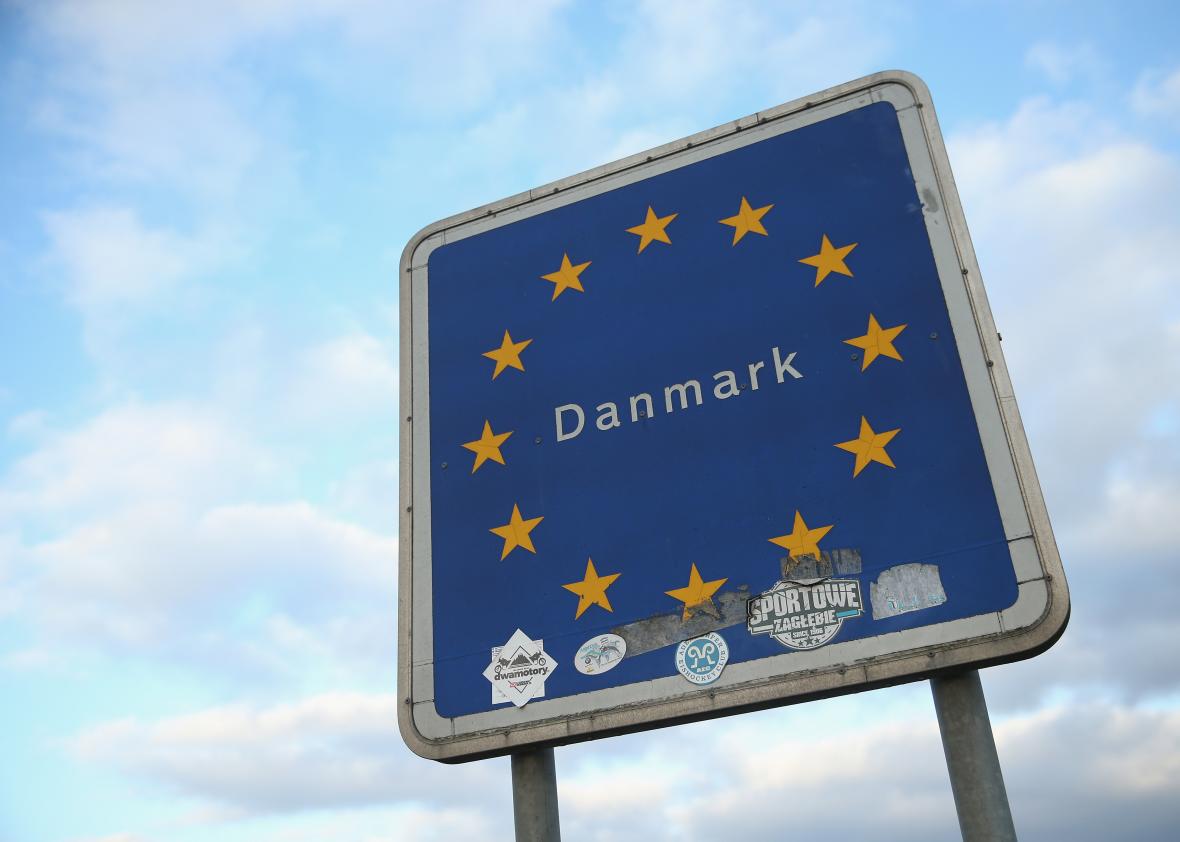Denmark’s Parliament passed a controversial bill Tuesday that gives police the authority to seize refugees’ valuables and delays the reunification of families. Under the new law, police will be allowed to search asylum-seekers upon arrival and confiscate anything worth more than 10,000 kroner ($1,459) to pay the costs of their housing and food. (Some sentimental items, such as wedding rings, are exempt.)
Amnesty International has criticized the law as “mean spirited,” and some critics have compared it to the confiscation of valuables from Jews during World War II. Denmark’s center-right government has defended the measure, saying that it merely holds asylum-seekers to the same standards as Danish citizens, who are required to sell their assets before claiming unemployment benefits. But Danes aren’t subjected to police searches to determine those assets, and many have unemployment insurance that prevents them from having to sell their valuables.
Switzerland has a similar law, enabling the government to confiscate assets worth more than $1,000 from asylum-seekers, and the German state of Bavaria also has a similar rule. The asset seizures have gotten the most attention in the new Danish legislation, which passed Tuesday 81–27 after a contentious debate. “Morally, it is a horrible way to treat people fleeing mass crimes, war, rapes,” said an MP from one small left-wing party. “They are fleeing from war and how do we treat them? We take their jewelry.”
As most asylum-seekers are destitute, such laws affect a relatively small number of people. (Swiss authorities collected a slightly more than $200,000 from 112 people last year. The country’s total population of asylum-seekers is around 17,000.) However, another Danish measure, which extends the time requirement for family reunification, may ultimately affect more people. Previously, refugees arriving in Denmark could apply for their spouses and children to join them after one year. The new law raises that to three years. U.N. agencies have suggested the change may violate a number of international treaties signed by Denmark.
The laws seem designed to discourage asylum-seekers from heading to Denmark. The government has taken out advertisements in Lebanese newspapers in recent months announcing tighter regulations and benefit cuts. The country has also tightened controls on its southern border with Germany. Though Denmark says the clampdown is temporary, it’s one of a number of recent moves—including the EU’s recent threat to effectively seal off Greece’s borders to control the tide of refugees—putting the continent’s cherished passport-free travel regime in jeopardy
Though a member of the EU, Denmark had previously negotiated the right to opt out of EU asylum rules as a condition of its membership. It now appears to be drifting further from Brussels’ orbit.
